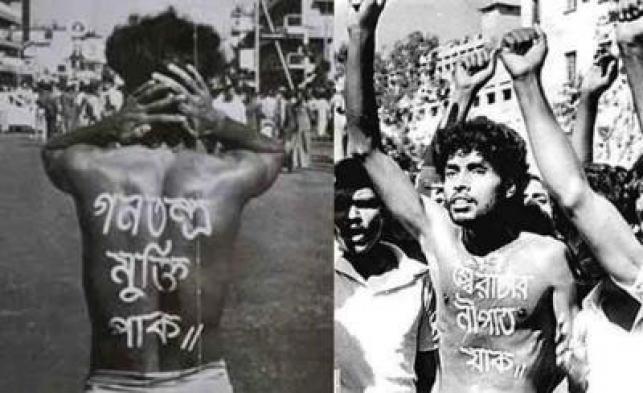Late in the evening on January 8, 1972, Pakistan’s new President Zulfikar Ali Bhutto bade farewell to the newly freed founding father of Bangladesh, Bangabandhu Sheikh Mujibur Rahman, at Chaklala airport in Rawalpindi.
Having spent nearly ten months in solitary confinement in what till recently had been West Pakistan and was now what remained of Pakistan, the Bangalee leader was now free to come back to his country, one that had waged a nine-month guerrilla war against the Pakistan occupation army and emerged triumphant on December 16, 1971.
In the nine months of the war, Mujib, arrested in Dhaka on March 25, 1971, had been tried in camera before a military tribunal set up by the Yahya Khan military junta and sentenced to be hanged on charges of waging war against Pakistan.
President Bhutto, having taken over on December 20, 1971, came under global pressure to release Bangabandhu in the interest of peace and reconciliation in South Asia. Besides, with 93,000 Pakistani soldiers taken prisoner in Bangladesh after the surrender of the Pakistan army before the Joint Indo-Bangladesh Command, it was Bhutto’s worry that the return of the PoWs would be at risk if Mujib was not released. Bhutto had Bangabandhu moved from prison and placed under house arrest near Rawalpindi on December 22. Over the next many days, he and Bangabandhu, who had been declared president of Bangladesh at the swearing-in of the Mujibnagar government on April 17, 1971, held a series of meetings at which Pakistan’s new leader pressed Mujib to have Bangladesh maintain some links with Pakistan. Bangabandhu remained non-committal. On January 3, 1972, at a public rally in Karachi, Bhutto made a show of asking the crowd if it favoured Mujib’s release in the interest of friendship with “our brothers in East Pakistan”. When the crowd roared back with a loud yes, Bhutto responded, “Shukriya, shukriya.”
As the special Pakistan International Airlines aircraft carrying Bangabandhu and Dr Kamal Hossain, along with the latter’s family, took off in the deepening night, Bhutto said to no one in particular, “The nightingale has flown.” On board the aircraft was also a group of senior Pakistani air force and civil aviation officials, who had obviously been instructed to ensure Bangabandhu’s safe arrival at his destination. And the destination turned out to be London, where Bangabandhu arrived early in the morning. Alerted by the British Foreign Office about the development, MM Rezaul Karim, at the time the senior most Bangalee diplomat in London, drove down to Heathrow, where he found Bangabandhu and Kamal Hossain in the VIP lounge. On Karim’s arrival, the Pakistani officials flying with Mujib saluted the Bangladesh leader and left the room, their job done. Bangabandhu, as Rezaul Karim was to relate years later, declined to use the official limousine placed at his disposal by the British government and instead rode with Karim in his car. Karim, who was driving through the cold winter morning, was both excited and alarmed. Excited because in an incredible way he had become the first Bangalee to have met his nation’s leader for the first time since March 1971; alarmed because Bangabandhu kept asking him questions about the war and how Bangladesh had been liberated and Karim was afraid lest his car meet with an accident and cause fresh new tragedy.
In the evening, having spoken to his family and Prime Minister Tajuddin Ahmed in Dhaka, Bangabandhu addressed a crowded press conference at London’s Claridges Hotel, where he had been put up. “Gentlemen”, he told the media, “as you can see, I am alive and well.” He then proceeded to make a statement, which began thus, “Gentlemen of the world press, I am happy to share the unbounded joy of freedom won by my people in an epic liberation struggle.” He told the crowd that earlier in the day he had met Prime Minister Edward Heath and the Labour opposition leader Harold Wilson and he was happy. Asked why he had chosen to come to London from Pakistan, he answered that his destination was not his choice but Bhutto’s.
Bangabandhu Sheikh Mujibur Rahman left London late in the evening on January 9, 1972, and arrived in New Delhi the next morning, January 10. Among those who welcomed him at Palam airport were India’s President VV Giri, Prime Minister Indira Gandhi, Foreign Minister Sardar Swaran Singh and West Bengal Chief Minister Siddhartha Shankar Ray. The Bangladesh leader departed for Dhaka after addressing a public rally in Delhi. At 1:20pm, the British comet aircraft bringing him from London and Delhi was spotted in the Dhaka skies. Twenty minutes later, the Father of the Nation emerged from the aircraft, to be welcomed back home by his political colleagues and by millions of Bangalees. Huge crowds accompanied Bangabandhu, who was on a truck with the leaders of the Mujibnagar government, to the Race Course (today’s Suhrawardy Udyan). He paid tributes to the martyrs of the Liberation War, spoke briefly of his own ordeal in Pakistan, and made it clear that Bangladesh had come to stay. For the very first time in his political career, Bangabandhu broke down as he spoke of the sacrifices of his people.
And then he went home to Dhanmondi, to be reunited with his wife and children and his parents.
All across the city and throughout the country, the victory slogan of Joi Bangla rent the air.
Source: The Daily Star









